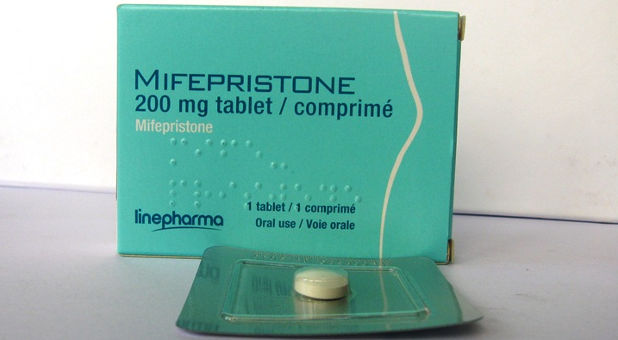A new study warns that the risks of the abortion pill to women’s health likely are much higher than what the government is reporting.
Published in December in the journal “Health Services Research and Managerial Epidemiology,” the research found a “significant” gap in reports on abortion complications from the drug mifepristone, according to Fox News.
The findings call into question a December action by the Biden administration that removed safety regulations from the abortion drug. The Food and Drug Administration claimed that mifepristone is very low risk when it revoked a requirement that the drug be provided in person by a medical professional.
Now, abortionists are selling the abortion drug online – often without seeing or even talking to the woman first.
Though pro-abortion groups claim the abortion drug is extremely safe for women, a growing body of research suggests otherwise.
Please follow LifeNews.com on Gab for the latest pro-life news and info, free from social media censorship.
The new study examined data from the FDA’s online reporting system as well as the actual complication, or adverse event, reports submitted to the FDA. Researchers compared these reports with data from Planned Parenthood from the same year published in a previous study by Kelly Cleland.
Dr. Donna Harrison, one of the researchers, said they found “significant discrepancies” in the number of complications reported in 2009 and 2010 between the various sources.
According to their study, the total number of adverse events reported in the Cleland study was “significantly higher” than the number in the FDA Adverse Event Reporting System – “even though Cleland did not evaluate all [adverse events], including failed abortions treated at Planned Parenthood.”
The researchers said they were “particularly” concerned about this discrepancy because the FDA numbers should be higher than the Planned Parenthood numbers. That year, Planned Parenthood did 37 percent of all abortions in the U.S.
In other words, there were more complications from the abortion drug reported in those years by Planned Parenthood alone in the Cleland study than the FDA reported in total, even though Planned Parenthood only did about one third of all abortions in the U.S. in that timeframe.
“It is unclear why so many cases identified by Planned Parenthood in Cleland do not appear in” the FDA reporting system, the researchers said.
They pointed out that the Cleland study also under-counted complications, writing: “Although Cleland’s paper is a study of over 200,000 abortions and is cited extensively in support of the safety of medical abortion, the analysis excludes the most common adverse events (retained products of conception and hemorrhage not requiring transfusion). Additionally, Cleland’s reported complication rate of 0.65% is only a report of the complications known to Planned Parenthood. Cleland does not report the percent of patients lost to follow-up.”
The study coincides with other researchers’ findings.
Another 2021 study by the Charlotte Lozier Institute found that abortion-related emergency room visits by women taking the abortion drug increased more than 500 percent between 2002 and 2015. Researchers, looking at Medicaid code records, found “423,000 confirmed induced abortions and 121,283 subsequent ER visits occurring within 30 days of the procedure.”
Meanwhile, in the United Kingdom, new government health data shows a massive hospitalization rate due to abortion drugs after the government began allowing mail-order abortion drugs in 2020. According to the data, more than 10,000 women who received the abortion drugs by mail needed hospital treatment in 2020, or about one in 17 women.
A 2009 study “Immediate Complications After Medical Compared With Surgical Termination of Pregnancy” published in “Obstetrics and Gynecology” found a complication rate of approximately 20 percent for the abortion drugs compared to 5.6 percent for surgical abortions. Hemorrhages and incomplete abortions were among the most common complications.
Another study, published in “Issues in Law & Medicine” in 2021, found “glaring deficiencies” in reports documenting complications from the abortion drug in the U.S.
Despite the growing evidence, the pro-abortion American College of Obstetricians and Gynecologists criticized the new study in a carefully-crafted statement.
“This study contains potential methodological flaws and likely inappropriately drawn conclusions that contradict the decades of science and practice demonstrating the safety of medication abortion in the U.S.,” ACOG spokesperson Dr. Nisha Verma told Fox News.
However, when Fox News asked ACOG for more details about these potential flaws, it did not respond.
Mifepristone is an abortion drug used to abort unborn babies up to about 10 weeks of pregnancy. It works by blocking the hormone progesterone and basically starving the unborn baby to death. Typically, women also are prescribed a second drug, misoprostol, that induces labor and expels their aborted baby’s body.
Risks include excessive bleeding, severe abdominal pain, infection, hemorrhage and death. The drugs are especially dangerous for mothers with undetected ectopic pregnancies. For many years, the FDA required licensed medical professionals to provide mifepristone in-person after a medical exam – safety regulations that protect women from undetected and potentially life-threatening complications.
The FDA has linked the abortion drug to at least 24 women’s deaths and 4,000 serious complications between 2000 and 2018. However, under President Barack Obama, the FDA stopped requiring that non-fatal complications from mifepristone be reported. So the numbers almost certainly are much higher.








